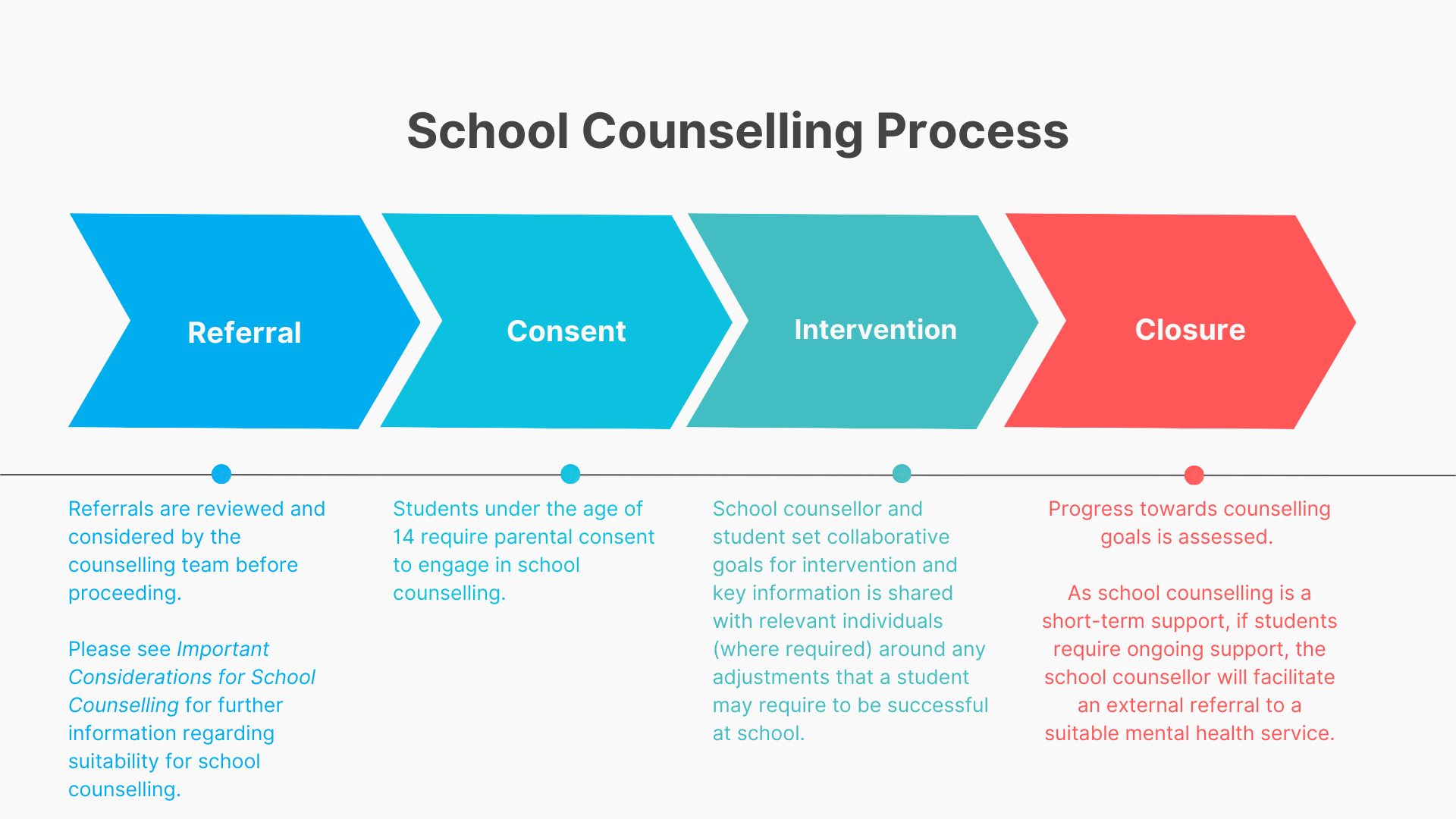Counsellor’s corner

Merici College offers on-campus school counselling provided by experienced mental health professionals. Our goal is to support students by fostering conditions that maximise educational equity, student wellbeing, and learning success.
Merici College has two dedicated school counsellors. Chelsea is at Merici on Monday through to Thursday and Xian is at Merici on Monday, Tuesday, Thursday and Friday.
What is school counselling?
- School counselling is a short-term, goal-focused therapy available to support students to reduce the impact that mental health challenges may be having on their participation at school.
- School counsellors work collaboratively with school staff, parents and carers and external agencies to support student learning and wellbeing outcomes.
- All counsellors are professionally qualified Social Workers or Psychologists who participate in regular clinical supervision and professional development.
- School counsellors are not employed as specialists and at times will suggest referrals for specialist services. School counsellors do not provide cognitive or learning assessments, or court reports. Families requiring these will be referred to other services.
How to access school counselling
- Speak with your child’s PC Teacher and House Coordinator as a first step so they can ensure your child can be holistically supported throughout the school day. For example, anxiety about coming to school may be related to not understanding how to navigate SEQTA, and this can be addressed in a timely manner by the right person.
- Submit a referral for school counselling via the referral link
- Parental consent is required for students under the age of 14. Students 14 and older can access school counselling without parental consent.
- Once the referral is received, it is reviewed by the counsellors who will contact you about the next steps. In some instances, the school counsellors may ask for additional information regarding the student before commencing school counselling sessions.
- In some cases, we may recommend options for external support avenues (e.g., a specialised mental health service) if a student’s needs fall outside the scope of school counselling (please see Important Considerations for School Counselling).
- As we are a short-term support, students may also be referred to external mental health services following the cessation of school counselling sessions. The need for ongoing mental health intervention is assessed throughout the school counselling process.
Important considerations for school counselling
There are some instances where school counselling may not be the best placed support option. Some important considerations include:
- The student is accessing external therapy: It is important that students receive support through one therapeutic avenue at a time. If a student is already engaged with mental health support (e.g., psychologist, counsellor) outside of school, it would be most appropriate to continue with this external provider. We would recommend increasing the frequency of support sessions, as well as requesting if the treating professional could provide written recommendations for support strategies that can be implemented at school.
- There are safety concerns or complex mental health issues: School counselling is a generalist, short-term support operating during usual school hours. Students experiencing complex mental health or safety concerns (e.g., self-harm, suicidality) would be best supported by specialised service such as CAMHS. The school counsellors can assist in facilitating a referral to CAMHS where required.
- The student does not wish to engage in counselling: School counselling is a voluntary support. If a student does not wish to engage, the school can assist supporting the students in other ways.
School counselling is not a crisis support service and operates during usual school hours. Emails and phone calls outside of these times may be unsupervised.
If your child is in immediate danger, please call Emergency on 000.
If your child is experiencing a mental health crisis and requires support, please contact:
- Kids Helpline – 1800 551 800
- Lifeline – 13 11 14
- Access Mental Health Team (ACT)- 1800 629 354
- NSW Mental Health Line – 1800 011 511
Other helpful resources include:
- MindMap – ACT Youth Portal
- headspace National Youth Mental Health Foundation
- Marymead CatholicCare Services
- Fearless Women
- ReachOut Australia
For more information regarding school counselling, please email us at counsellors@merici.act.edu.au



